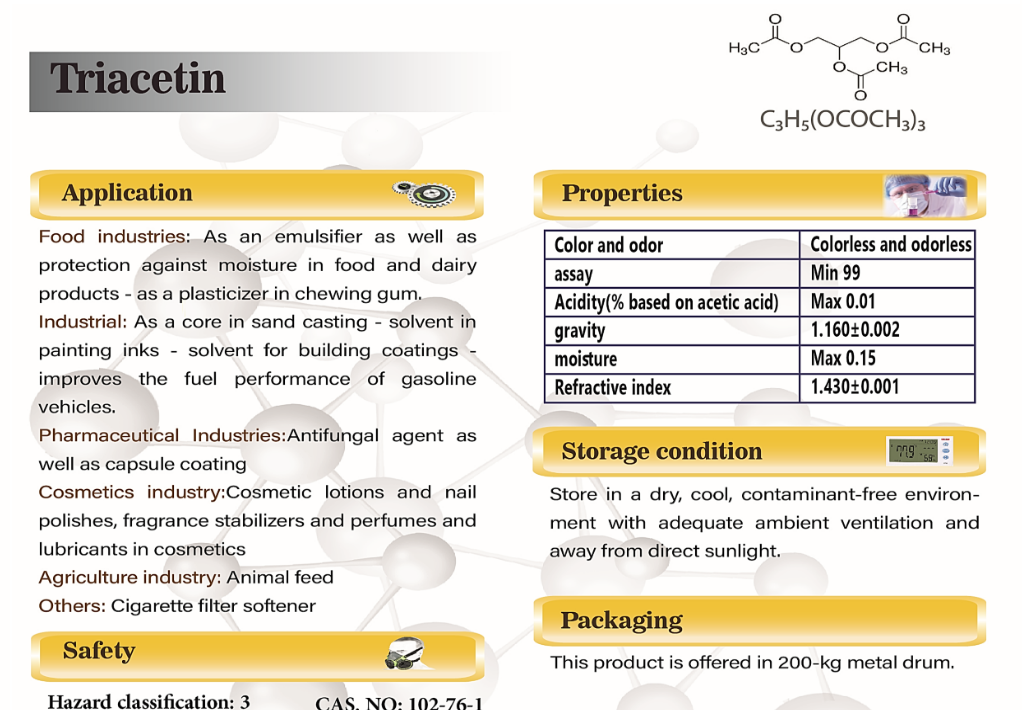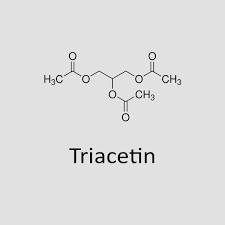Triacetin Unveiled: Versatile Applications and Safety Measures
Introduction:
Triacetin, also known as glyceryl triacetate, is a colorless and odorless liquid with widespread applications across various industries. This multifunctional compound is valued for its versatility and plays a crucial role in different processes. This text will explore the safety considerations associated with triacetin usage, followed by a detailed examination of its diverse applications in plastic manufacturing, pharmaceuticals, food production, perfumery, leather treatment, and its role in printing and electronics industries.
Safety Considerations:
Triacetin, while beneficial, requires careful handling to ensure worker safety. Adequate ventilation and the use of personal protective equipment are recommended during industrial processes to minimize potential inhalation exposure.
Applications in the Plastic Industry:
Triacetin’s primary role in the plastic industry involves serving as a plasticizer. By enhancing flexibility and pliability, it contributes to the production of durable plastic products.
Utilization in the Pharmaceutical Sector:
In the pharmaceutical sector, triacetin is a vital component, functioning as a carrier and solvent for various drug formulations. Its compatibility with different substances makes it indispensable in drug delivery systems.
Contribution to the Food Industry:
Within the food industry, triacetin acts as a stabilizing food additive, enhancing texture and shelf life. Adherence to regulatory guidelines ensures its safe use in food processing.
Role in Perfumery:
Triacetin is employed in perfumery to improve fragrance stability. Its inert nature ensures a consistent and prolonged release of scents in perfumes and colognes.
Application in Leather Treatment:
The leather industry benefits from triacetin as it is used for softening and conditioning leather goods, contributing to overall quality and longevity.
Significance in Printing and Electronics:
Triacetin’s solvent properties find applications in the printing industry for ink formulations. In the electronics sector, it contributes to the formulation of stabilizing compounds such as greases and neutral oils.
Conclusion:
Triacetin’s versatile applications underscore its importance in various industries. While its benefits are evident, adherence to safety protocols is essential to ensure responsible usage in industrial settings.
For further information and purchasing inquiries, please contact the following number:





